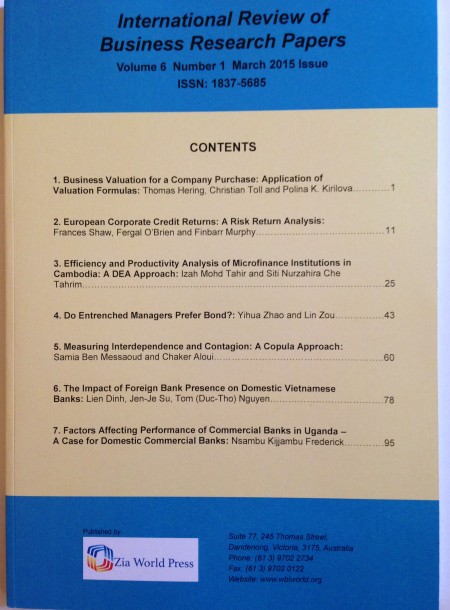The Moderating Effects of Capital Regulation on Loans and Bank Stability: The Case of Malaysia

International Review of Business Research Papers
Vol. 10. No. 2. , September 2014, Pages: 137 – 147The Moderating Effects of Capital Regulation on Loans and Bank Stability: The Case of Malaysia
The importance of loans to the banking industry is undeniable and is one of the main contributors to banks’ profits. However, high loan growth and large concentration of loan to certain economic sector would increase banks vulnerabilities and expose banks to financial shocks which eventually would affect the bank stability. Realizing the risks faced by the banking institutions, this study examines the effects of loan activities of Malaysian banks to the bank stability. This study hypothesizes that bank stability is dependent on loan activities of the bank. As banking industry is bound to capital regulation, this study also investigates the moderating effect of capital regulation on the relationship between loan activities and bank stability. Confined to Malaysian commercial banks over the period of 2000-2012, this study provides mixed results on the effect of loan activities to bank stability. The results revealed that although loan growth of the banks is below the international benchmark for excessive lending, the loan growth increased the banks vulnerabilities and risk of failure. High concentrations of loans to certain economic sector increased bank stability while the results on capital regulation evidence the importance of this regulation, where it is found that capital regulation moderates the relationship between loan concentration and bank stability. Overall, the results suggest that Malaysian banks under the new banking structure exercised good loan activities, and the loan activities together with the existing capital regulation increased the banks’ stability.Field of Research: Banking
